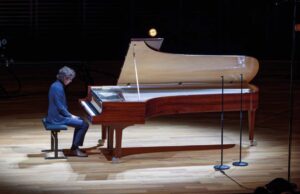Piano Forum
 |
Lucas Debargue - A Matter of Life or Death Pianist Lucas Debargue recently recorded the complete piano works of Gabriel Fauré on the Opus 102, a very special grand piano by Stephen Paulello. Eric Schoones from the German/Dutch magazine PIANIST had a conversation with him. Read more >> |
Pages: [1] Go Down
Pages: [1] Go Up
For more information about this topic, click search below!
 Topic: My experience with Bernhard's concepts (this is really long, sorry)
Topic: My experience with Bernhard's concepts (this is really long, sorry)